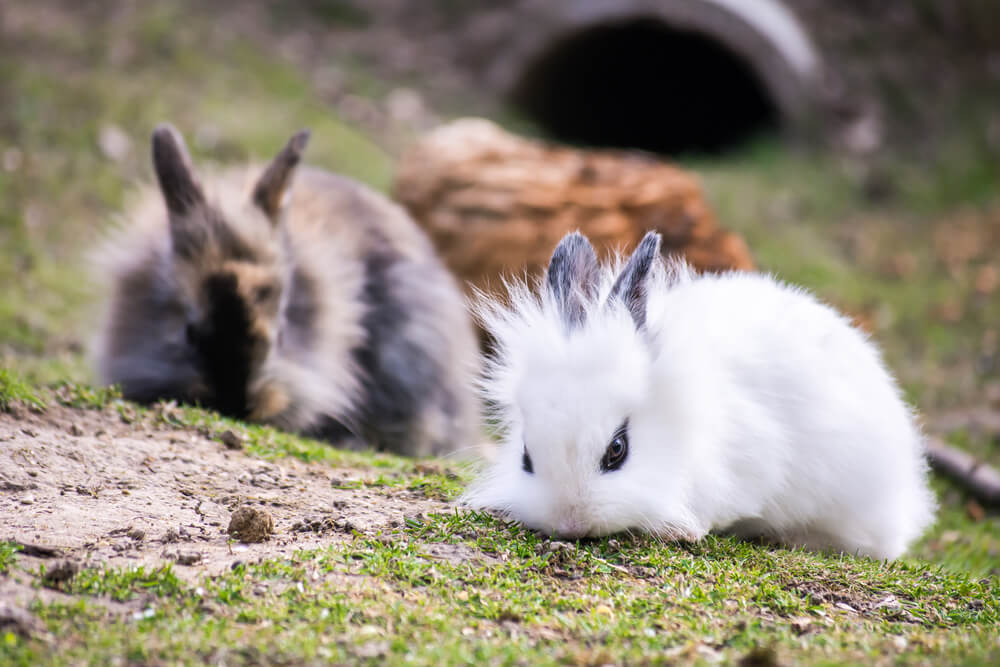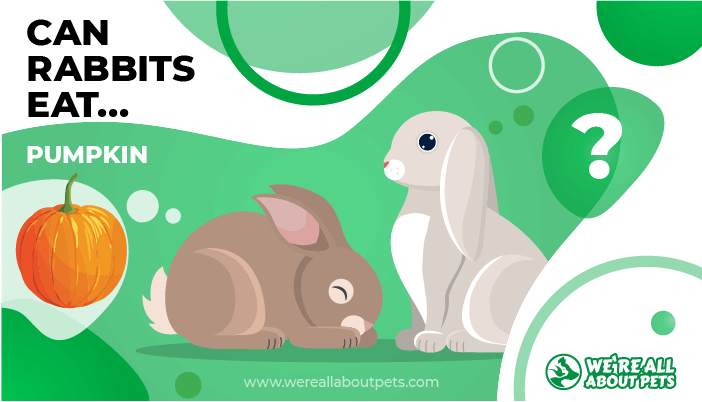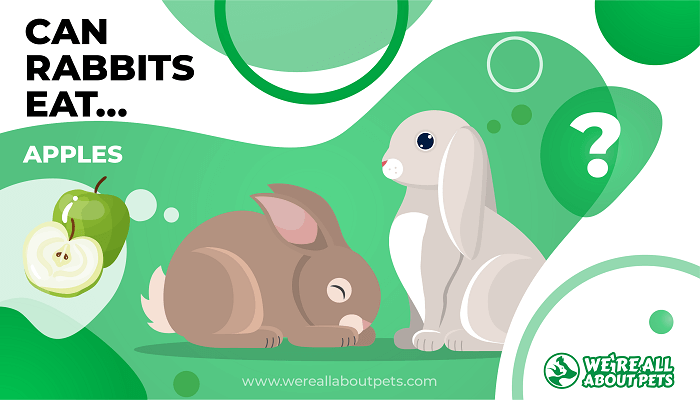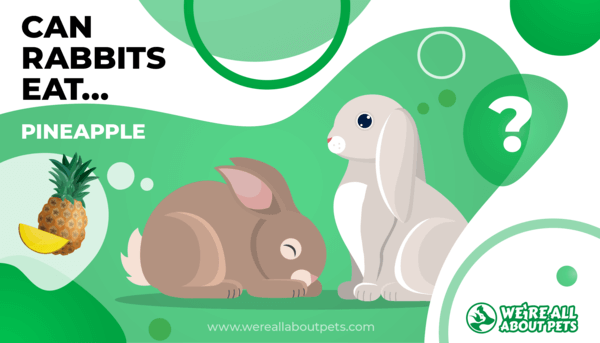How To Care For A Lionhead Rabbit?
This page contains affiliate links. We may earn money or products from the companies mentioned in this post through our independently chosen links, which earn us a commission. Learn More
With their fluffy manes and tiny snuffly noses, there’s no escaping the fact that Lionhead rabbits are exceedingly cute. This, alongside the fact that they are amongst the smaller of the rabbit breeds, makes them very popular as pets. However, they do need plenty of handling, space and the correct diet, so it’s good to do some research before you plunge in!
Let’s Start With The Basics!
Lionhead Rabbits are a fairly recent breed, and are thought to have emerged in Belgium by crossing a Swiss Fox with a Netherland Dwarf. The resulting small breed with a fluffy mane of fur quickly became popular. At only 8-10 inches long when adult, and weighing 2.5-3.5lbs, they are among the smaller breeds of rabbit.
How Long Do Lionhead Rabbits Live?
They have a life expectancy of around 7-9 years. They have been officially recognised in the U.S. since 2014. They come in a variety of colours, and although they all have the distinctive mane of fur, they come in single or double maned varieties which means some are much fluffier than others!
Do Lionhead Rabbits Make Good Pets?
Kept in the right environment, with plenty of outlets for natural activity, Lionheads can make excellent pets. They can be a friendly and playful breed, and being small, can be kept as house rabbits as well as outdoor, with the appropriate facilities.
However, they are not an ‘easy’ choice, and as with all pets, require careful handling and the right environment. As an active breed, they do require plenty of space despite their small size.
They are also natural diggers and chewers, so need appropriate areas for this so that they do not become destructive. Rabbits are a prey species, and therefore can be very fearful if not carefully and frequently handled. Lionheads can be especially timid, and so noisy households with lots of children and other pets may not be suitable unless carefully managed.
Lionhead Rabbit Size Chart
| Age | Avg. Length | Avg. Weight |
| 0-6 months | 6 inches | 2 pounds |
| 6-12 months | 6-8 inches | 2-3 pounds |
| Mature | 8-10 inches | 3-4 months |
Are Lionhead Rabbits Cuddly?
They certainly look cuddly, with their mane of pure fluff, but that doesn’t necessarily mean they’re all destined to be lap-rabbits. Lionheads are often fairly timid, and can shy away from human contact. However, if you are quiet and careful around them, and handle them frequently – starting with very short periods and gradually building up – they can become very used to contact and be happily cuddled.
Do Lionhead Rabbits Bite?
All animals have the potential to bite, and handling should always respect this. Lionheads are known to be timid, and if not handled carefully can become aggressive as a form of defence.
The best way to avoid this is to teach them that human contact is a positive thing. Be patient and quiet, allow them plenty of time and space to get used to you before handling. Don’t rush in to pick them up, but allow them to approach you – and remember that some tasty treats don’t go amiss! Once confident, start some gentle handling, but remember not to restrain them too tightly else they may panic.
Slowly build up the amount of time they are handled: remember, little and often is the key. Infrequent or rough handling will lead to a fearful rabbit who is more likely to bite.
Another factor that can lead to biting is frustration. Lionheads are active and curious, so allowing them plenty of opportunities to run around and gnaw on things will help them stay happy and healthy. Rabbits deprived of enrichment and adequate space are more likely to become aggressive.
Can Lionhead Rabbits Live Alone?

Rabbits are very sociable animals, and in the wild live in large family groups. Rabbits should generally be provided with another bunny companion, unless there is a specific reason not to. Family members, such as a pair of sisters, or a mother-daughter pair usually bond well, but unrelated rabbits can be very happy companions if introduced correctly. The House Rabbit Society has some excellent resources on introducing bunnies to each other.
What Do They Need?
Rabbits tend to need more space than you might think. Although small, they are active and benefit from a large living area, as well as space to run around outdoors. Additional enrichment such as places to dig, safe toys from them to chew and plenty of different areas to explore are all necessary to keep them happy as well as healthy. Cramped, dirty conditions with no areas for them to display natural chewing and digging behaviour can lead to stress and disease.
What Do Lionhead Rabbits Eat
Their diet is also very important. Various packets of ‘rabbit pellets’ may make themselves out to be all you need, but this is incorrect. Rabbits have delicate gastrointestinal systems that are prone to ‘ileus’, where the gut goes into stasis and doesn’t digest food well. This can be extremely serious. It is an absolute necessity that their diet has a high proportion of hay and other high fibre food, such as fresh grass. Hay should be unlimited, alongside some fresh leafy vegetables and a few pellets if wanted.
There are various types of hay available. This is also very important to aid the wearing of teeth: as rabbit teeth continually grow, they need to eat food that helps prevent them from growing too long. Suitable toys to gnaw on are also excellent for preventing dental issues.
Lionhead Rabbit Grooming & Care Tips
Lionheads are well known for their hair, which means that grooming is also an important part of their husbandry.
Regular brushing will help keep their fluff in order, and prevent discomfort from tangles and matts. Lionhead Rabbits also come in a double-mane variety, which have extremely thick coats which will need regular attention.
Rabbits will groom themselves, but excess ingestion of hair can build up and cause obstruction in their intestines, so it is recommended to help those hairier breeds out. There are lots of rabbit-friendly brushes available.
As with handling, start slowly and gently and build up to longer sessions. Add in some treats to ensure your rabbit sees these sessions as a positive bond rather than a stressful experience. If you’re unsure where to start with how to brush your rabbit, there are some handy hints here.
Health Concerns
Lionhead Rabbits are not generally prone to a specific disease. Like all rabbits, they can develop dental problems, especially if on an unsuitable diet. Unlimited access to hay, as well as regular dental checks, are recommended. Lionheads which have been bred to have flatter faces (brachycephalic) will be more prone to teeth problems due to overcrowding, they may also suffer from respiratory issues.
How to Bathe a Lionhead Rabbit
Where Can I Get One From?
It’s always best to go through a reputable breeder, or a knowledgeable rescue, to ensure your rabbit is healthy and well socialised. The American Rabbit Breeders Association has some good information on finding a breeder, and The House Rabbit Society has a page with known rescues listed by area.
Lionhead Rabbits are small, cute and fluffy – but taking one (or more!) on is a big responsibility. Playful and friendly if you overcome the timidity, they can make fantastic family pets, but need careful handling and plenty of space. There is lots of great information out there about this wonderful breed, so if you’ve done your research and decided they are the pet for you, then that’s fabulous!
Frequently Asked Questions
How big do lionhead rabbits get?
In avg. a mature Lionhead rabbit will be around 7.5 to 10 inches long and weigh between 2.5-3.5 pounds
How much do lionhead rabbits cost?
In avg. Lionhead rabbits cost is between $30 to $115



